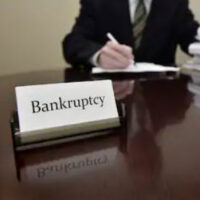What Are My Options for Consumer Bankruptcy if I Own a Small Business?

If you own a small business and want to file for personal or consumer bankruptcy, what are your options? There is no single answer to that question, and the best or available options to you will depend on your aim in filing for bankruptcy, the amount of debt, whether the debt is primarily consumer or business debt, the structure of your small business, and other factors. Generally, small business owners who own a sole proprietorship are not treated as an entity separate from their business — the business and the individual will both be filing for bankruptcy, in effect, because assets and debts of both the individual and the business will become part of the case. Differently, for small business owners who are co-owners or partners in a partnership or a limited liability company (LLC), for example, the options will be different because the individual and the business entity are separate — an individual owner or partner can file for bankruptcy without impacting the business.
Our West Palm Beach bankruptcy lawyers can tell you more about the options that may be available to you.
Chapter 7 Bankruptcy
For an individual consumer who wants to file for Chapter 7 bankruptcy, eligibility will typically be based on whether or not the individual can pass the “means test” — this is regardless of whether you want to file for bankruptcy while owning a sole proprietorship or are a co-owner of another type of business if your debts are primarily consumer debts. If you are a sole proprietor with primarily business debt, you may not need to pass the “means test.”
Chapter 7 bankruptcy is a liquidation bankruptcy, which means the consumer’s non-exempt assets will be liquidated in order for the consumer to receive a discharge. For sole proprietors, business assets and debts must be included since the sole proprietor and the business are not separate entities. For owners of other types of businesses, their interest in the business is an asset and may be subject to turnover to the trustee. It is best to discuss this issue with an attorney.
Chapter 13 Bankruptcy
Individuals can be eligible for Chapter 13 bankruptcy, which is a type of reorganization bankruptcy. Sole proprietors, as well as owners of other types of businesses planning to file for individual bankruptcy, are often eligible for Chapter 13 bankruptcy. The primary eligibility factor is your total debt, for which there is a ceiling of $1,395,875 for secured debt and $465,275 for unsecured debt.
Subchapter V Bankruptcy
Small business owners may in some cases be eligible for Subchapter V, which is another type of reorganization bankruptcy. This matter should be discussed with an attorney.
Chapter 12 Bankruptcy
Small business owners whose business falls under the classification of family farmer or fisherman could be eligible for Chapter 12 bankruptcy if a significant portion of their debt comes from the business.
Chapter 11 Bankruptcy
If you are ineligible for any of the above types of reorganization bankruptcy, then you will likely be eligible for Chapter 11 bankruptcy. This is a type of reorganization bankruptcy that is more complex than those listed above, but you may be able to file for bankruptcy under Chapter 11 with assistance from a bankruptcy lawyer.
Contact Our West Palm Beach Bankruptcy Attorneys Today
If you have any questions or need assistance with your bankruptcy case, you should contact an experienced West Palm Beach bankruptcy lawyer at Kelley, Kaplan & Eller today.
Source:
law.cornell.edu/uscode/text/11



